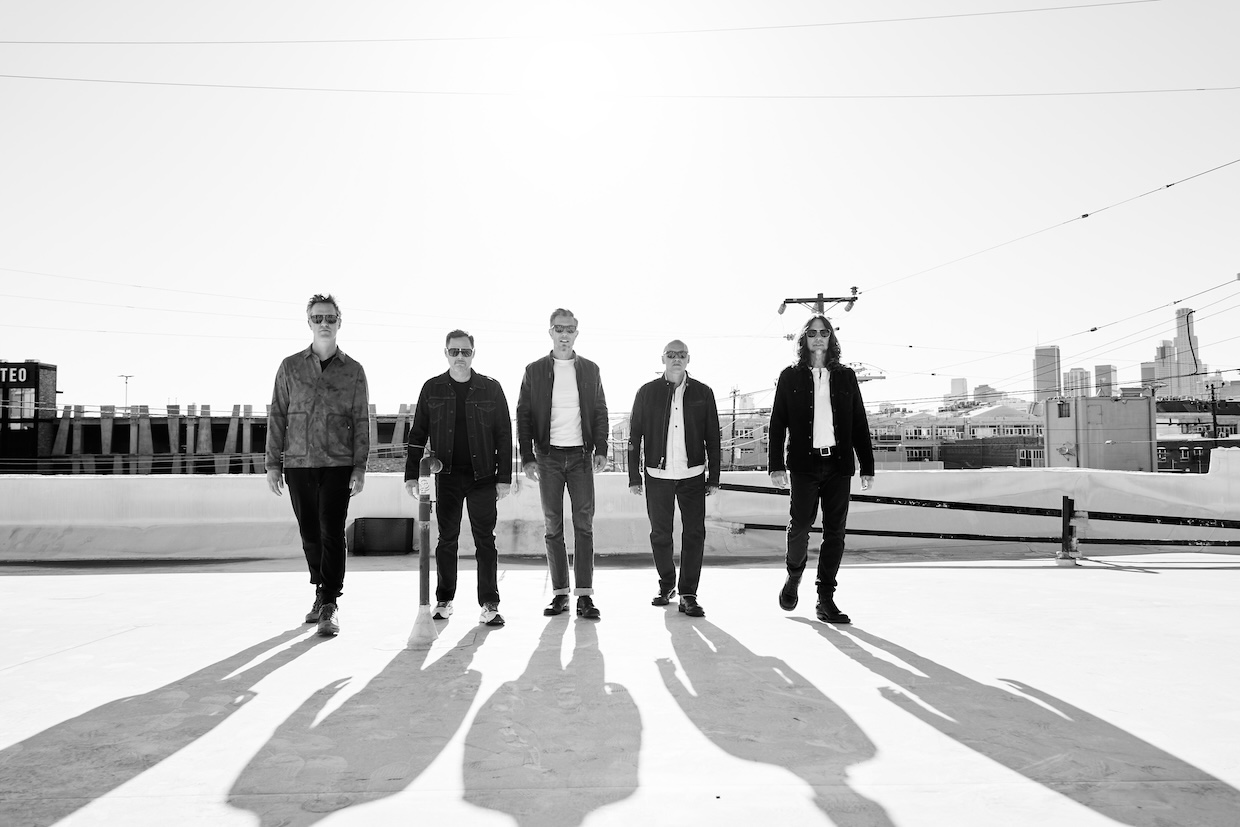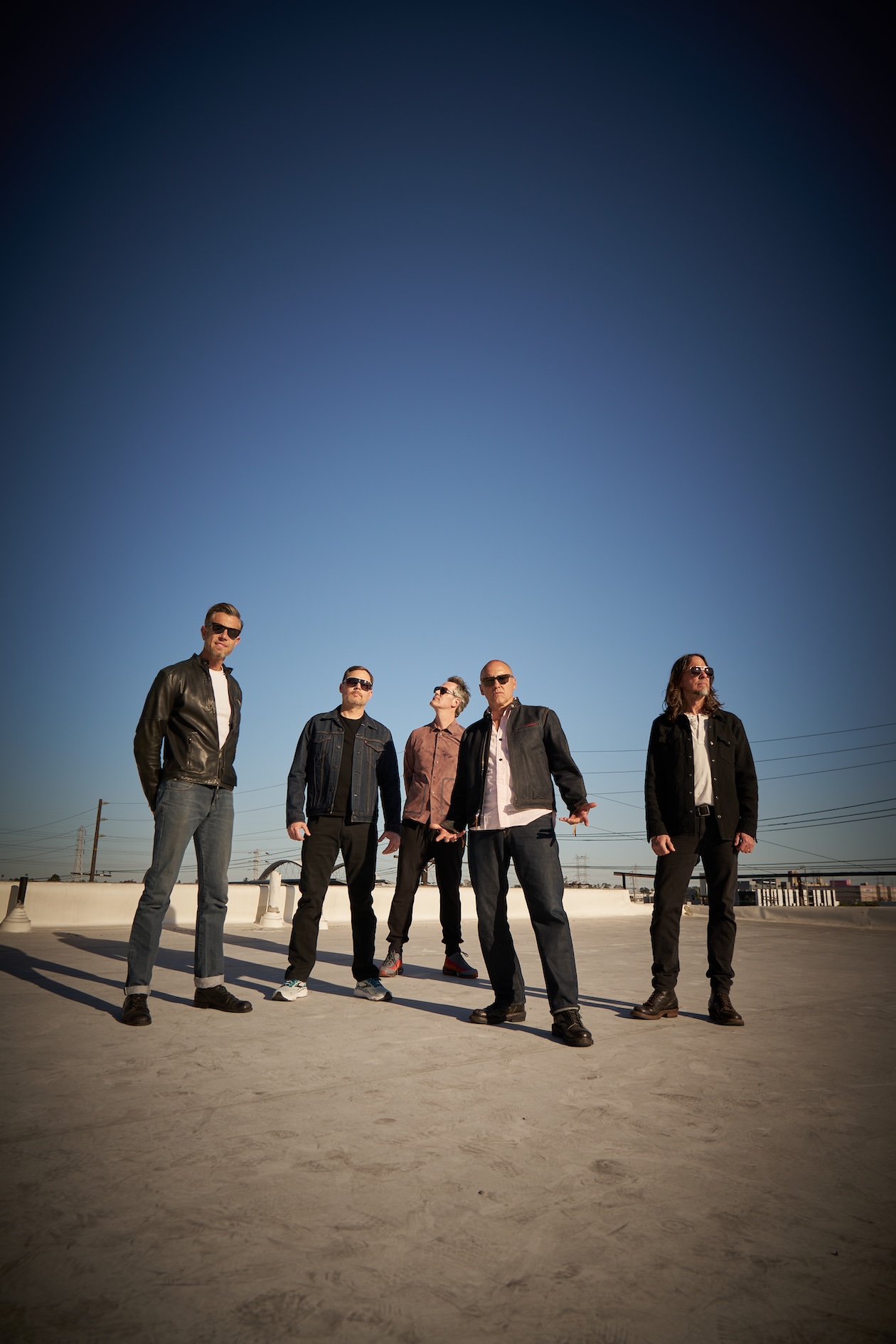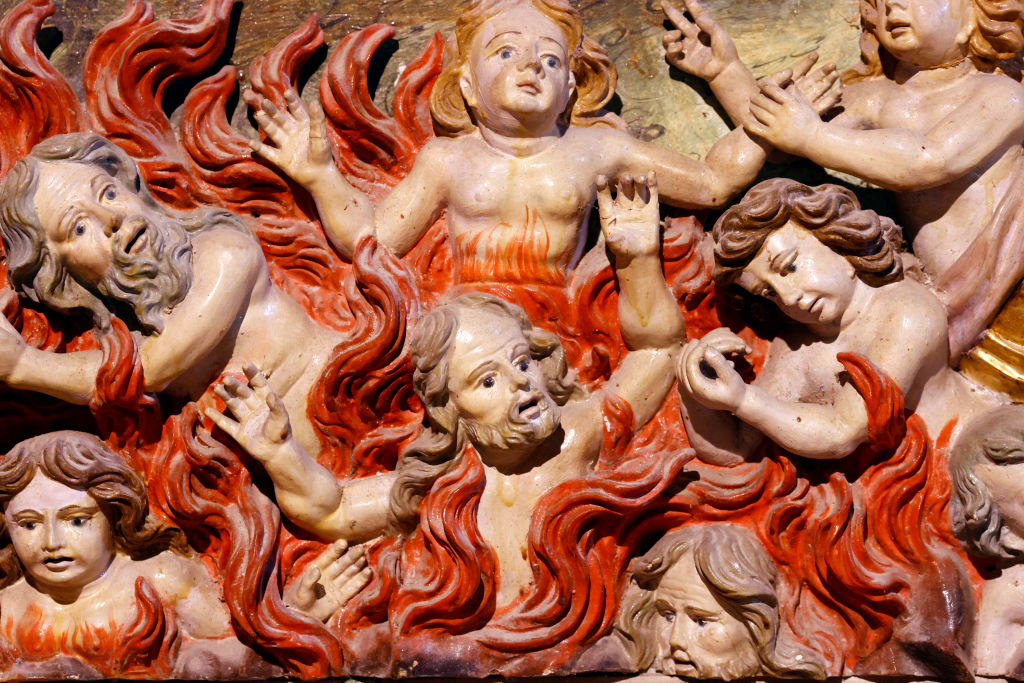
Nick Hexum thought he was going to die. During 311’s self-financed tour to support their first major label album, 1993’s Music, the group’s lead singer and guitarist was driving the band to a gig in rural Missouri in an old RV they had borrowed from drummer Chad Sexton’s father. Hexum noticed that the vehicle started losing power. Looking back, he saw smoke pouring out from the floorboards. By the time he pulled over, Hexum could see flames engulfing the sides of the RV.
“We had just filled up with a hundred gallons of gas,” Hexum tells me from his home studio in Topanga, the famed artist community nestled in the Santa Monica Mountains about 40 minutes outside of Los Angeles. In other words, it was only a matter of time before the thing was going to blow. “The flames are licking at the door, and everybody just starts jumping out. And since I’m driving, I was the last person out, and I can still remember that feeling of jumping into fire and being cooked on both sides of my body. My whole body felt sunburned. We just narrowly escaped with our lives.”
More from Spin:
- Jay Som Returns With Help From Hayley Williams, Jim Adkins
- OLD SOUL
- The Rapture Revive For First Tour Since 2012
Hexum remembers putting his hand in his hair and feeling the brittleness of it, and how it cascaded onto his shoulders in ash.
After reuniting with the rest of the band, they watched as the RV, along with all of their band equipment, went up in flames.
The first thing he said to his bandmates: “All we really need are the songs in our heads and each other…none of this stuff really matters.”

More than 30 years later, Hexum still has scars on his arms from that day, and the same positive attitude.
“June 10th was our 35 year anniversary. And those little landmarks, for me, it’s just a moment of real gratitude to know how lucky that we are to be able to do this and to stay together with our original lineup,” he says.
Formed in 1990 in Omaha, Nebraska, 311—consisting of Hexum, original lead guitarist Jim Watson (who would be replaced by Tim Mahoney in 1991), Aaron “P-Nut” Wills on bass, and Sexton—played their first gig opening for Fugazi that same year. Doug “SA” Martinez (vocals, turntable) played regularly with the group and officially joined in 1992.
Despite longtime claims that 311 was code for the Ku Klux Klan, the band’s name, Hexum says, was inspired by the Omaha police code for indecent exposure after original lead guitarist Watson and some friends were arrested after getting caught skinny dipping. The arresting officer wrote 311 at the top of the ticket.
“We just thought it was funny,” Hexum says. “To me, it was a very Gen X kind of ethos of being kind of mysterious and a bit of a reaction to the hair metal or whatever was before us in the ‘80s, and that it was a continuation of grunge in the fact that we just wore jeans and tank tops and it wasn’t this big glamorous thing.”
311 is celebrating another anniversary this year: the release of their self-titled third album, known as The Blue Album, the record that went triple platinum and rocketed the group to stardom with the help of its singles “All Mixed Up” and “Down.”
As Hexum explains, it’s not like 311 came out of nowhere. The band was steadily finding success with its first two albums on the Capricorn label, 1993’s Music and 1994’s Grassroots.
“We were thrilled with our success before that because it was like a nice steady…and then it was like a hockey stick when The Blue Album came out,” Hexum says as he raises his arm in an upward angular motion then straightens it vertically to illustrate just how quickly 311 accelerated the band’s trajectory to widespread fame. “Going viral back then was a much slower process because it was literally word of mouth or it was actual analog fan mail, those kinds of things,” says Hexum.

Back when MTV was a giant in the music industry, it could take an unknown band and make it an overnight sensation with its “Buzz Clips,” segment, music videos by up-and-coming artists that the network deemed to be the next big thing, or buzzworthy. When “Down” was chosen for this honor, that’s when Hexum and the rest of the band knew that something was different with their third album.
“That was pretty big, to be annotated as a buzz,” he says. “That means this is what everyone’s talking about right now. And then that also means that they played it every hour.”
Hexum says that there was a backlash of sorts among the band’s longtime fans when they hit it big. “That’s part of the alternative ethos, is liking something more when it’s your little secret and there’s a bit of a grieving period when everyone else finds out about your little secret.”
Another change the band noticed was that their audience skewed much younger, as opposed to the college-age crowds that were usually at their shows. “It was a lot of high school kids, junior high kids getting dropped off by their moms,” he says. “It became much younger because of the MTV thing. And we had a lot of people complaining about that, like, ‘What the hell? There’s all these kids now.’ And I was like, ‘Good. We want kids.’ The high school age is when you will go so deep into music and sit there and read every word, and whatever music a person likes in high school is going to be special to them forever. So, I was definitely not displeased that we all of a sudden had a bunch of younger people coming to our shows.”
Part of 311’s appeal was the timing of it all. Rap artists like Tupac and the Notorious B.I.G. were blowing up, as were Britpop groups like Oasis, and alternative bands like Smashing Pumpkins hit their high point with their best-selling album, Mellon Collie and the Infinite Sadness. 311’s blend of hip hop, reggae, and rock was the kind of music nobody thought they needed until they heard it.
311’s popularity carried over to the band’s next album, 1997’s Transistor, which charted at No. 4 on the Billboard 200, going platinum. In 1999, 311 released their fifth album, Soundsystem, with its single, “Come Original” reaching No. 6 on Billboard’s Modern Rock Tracks chart.
Now, three decades after releasing The Blue Album, 311 isn’t just a band, it’s an ever-growing institution. Besides the 14 studio albums they’ve released, the group held its own music festival, the Pow Wow Festival, in 2011, the mayor of New Orleans proclaimed April 11 311 Day, a now annual music-filled event that brings thousands of fans from around the world together to celebrate the band, the eighth 311 Caribbean Cruise took place in March, and they’ve launched their own cannabis brand.

In 2024, Hexum co-founded SKP (pronounced “escapee’), a software subscription service that empowers musicians, filmmakers, and other artists to create and distribute their projects independently of major labels and entertainment companies.
“We’re giving people the tools so they can stay independent and not have to get caught up in a crappy record deal like 311 did,” Hexum says. There’s so much exploitation. So now, if the ladder exists to allow an artist to build their career and never have to sign away ownership of their masters, then that’s a real disruption in favor of artists. So that’s what we’re doing.”
Through SKP, Hexum released two solo EPs of Americana music earlier this year, Waxing Nostalgic and Full Memories, and is working on his third, Waning Time, which is set to release in September, he says.
As Hexum reflects on his time with 311, he notes that the band is one of the few that still performs with its “original” lineup.. “There’s just something special about that,” he says, referring to the group as of 1991. “A lot of bands are still going where they have one original member and more power to them than they get to keep going. But just to still have the same five guys, there’s such a distinctness to each guy, the way they play their tones. You can hear P-Nut’s fingers on the bass, and Chad’s distinct snare sound and all that kind of stuff.”
As a meditation practitioner and recovering addict—which he’s alluded to on the track, “Lonely Existence,” from his Waxing Nostalgic EP—Hexum’s a big believer in the term, “Savor and Serve;” savoring the moments using all of his senses, being present, and living life in service of others.
“You can’t be happy living for your own selfish means,” he says. It doesn’t work. The happiest people on Earth are people who are concerned with other people’s happiness. So being as useful as I can be, not just to my family, not just to sober people, but just acts of service as I go. And fortunately, I believe our work in 311 is being of service because it’s helping our fans have a feeling of belonging, and more of a positive philosophy in this whole scary world that we have.”
The band is currently on its Unity Tour with Bad Flower and Sitting on Saturn.
To see our running list of the top 100 greatest rock stars of all time, click here.



